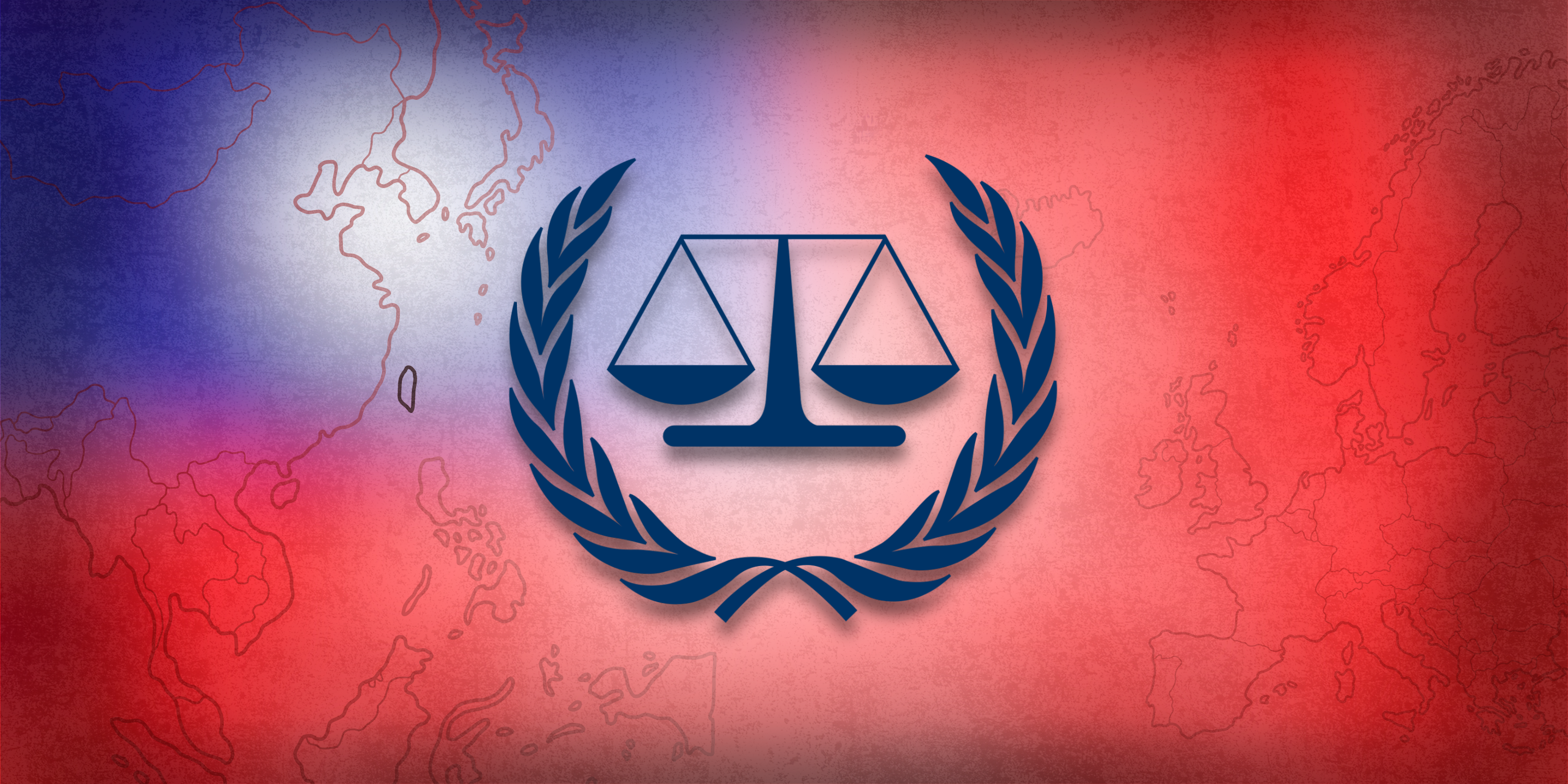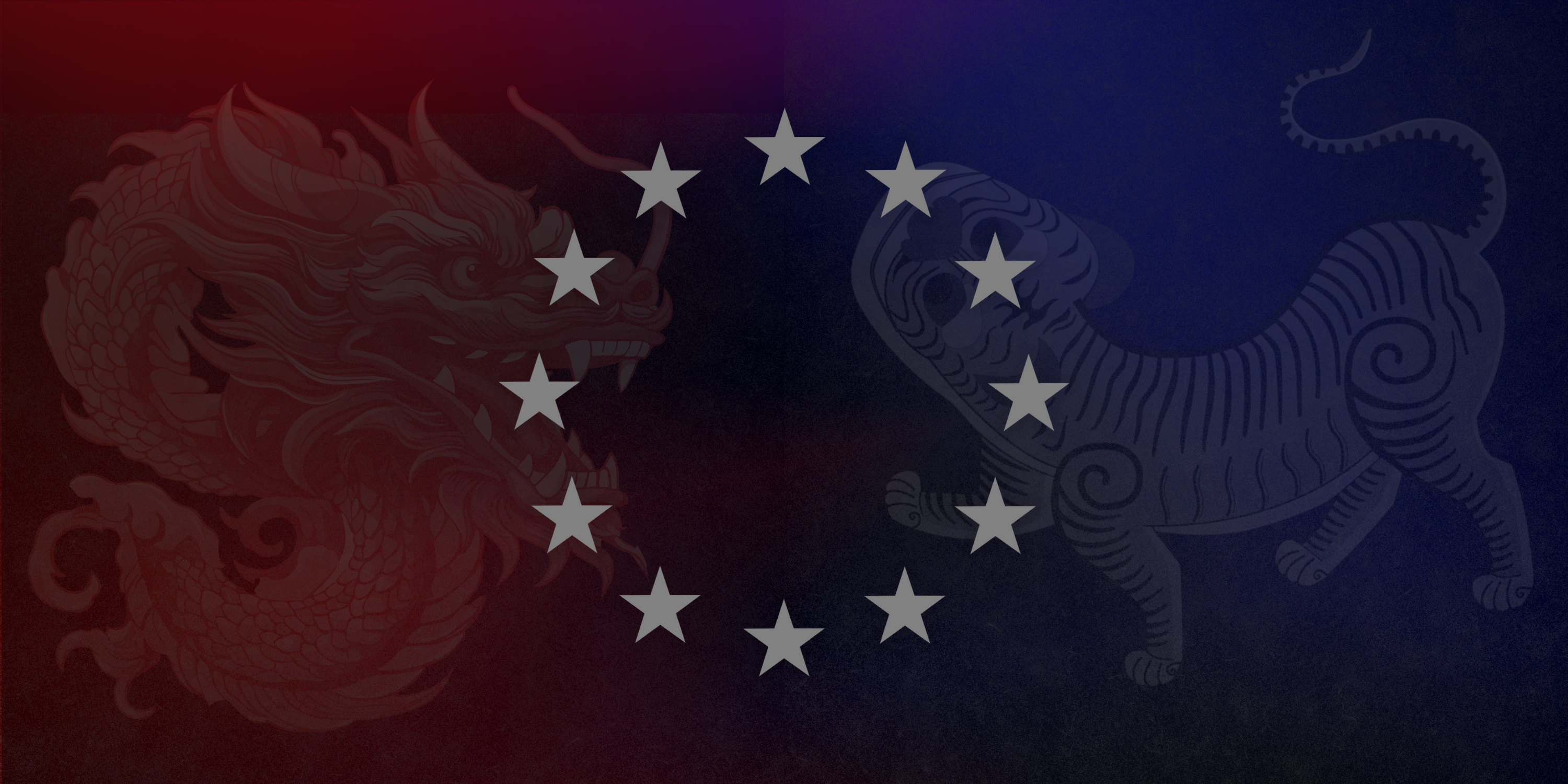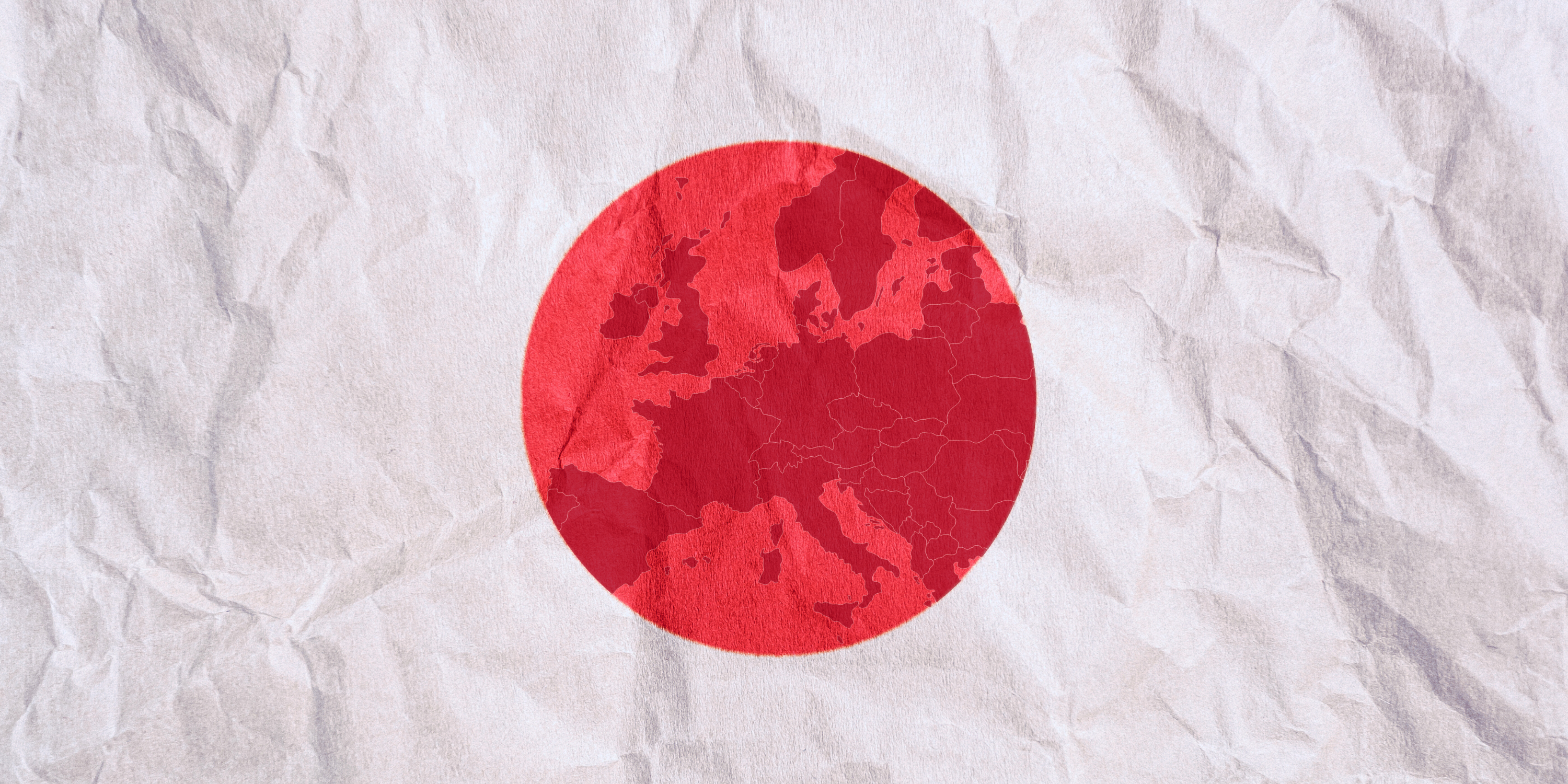European states should aid a Taiwanese bid to join the International Criminal Court (ICC), a symbolic statement of values as well as a substantive move to integrate Taiwan into the global community and preserve peace in the Indo-Pacific.
Key takeaways:
-
Compared with joining UN-led multilateral organizations, joining the ICC’s jurisdiction would require a simple unilateral declaration by the Taiwanese government.
-
European states can and should build on their judicial cooperation with Taiwan to offer diplomatic support for Taiwan’s bid while encouraging the US not to pressure Taiwan against joining.
-
Europe’s economic security would be bolstered by the minor deterrent effect against a Chinese blockade of Taiwan.
The recent renaissance in Taiwan-Europe relations has sparked a debate about how to support Taiwan: substantively or symbolically? While this tension deserves attention, it often presents a false dichotomy; many symbolic acts have substantive benefits. One of the clearest ways European states can symbolically and substantively support Taiwan—and help maintain peace in the Indo-Pacific in the process—is by backing its bid to join the International Criminal Court (ICC). The move would not only integrate Taiwan into an important international institution, binding the community of nations together, but also send a clear message that Taiwan upholds universal values of international law, justice, and human rights. Europe should support Taiwan’s inclusion within the ICC’s jurisdiction, which could provide a minor but meaningful deterrent against Chinese aggression on the status quo in the Taiwan Strait.
Although Taiwan is largely excluded from international institutions due to Chinese pressure, it would face fewer obstacles in joining the ICC, an institution that China is not a part of, which can be done through a unilateral declaration. Most nations have joined the ICC’s jurisdiction by depositing an instrument of accession to the Rome Statute with the United Nations, but Palestine and Ukraine successfully submitted to the Court’s jurisdiction by a simple unilateral declaration. In 2015 and 2019, the ICC confirmed this as a valid accession method and extended its jurisdiction to these territories. These precedents were further reinforced when the ICC issued arrest warrants for Russian officials, including President Vladimir Putin, and when the ICC Prosecutor’s Office applied for arrest warrants for Israeli and Hamas officials, including Prime Minister Benjamin Netanyahu and Hamas leader Yahya Sinwar. While the question of whether states can join ex ante—prior to the commission of alleged war crimes—is unsettled, simply initiating the process sends the right signals to the international community that Taiwan stands with international law and justice, as well as to China, and that Taiwan and its allies stand ready to initiate ICC proceedings in the event of aggression against the status quo.
Many of Europe’s larger economies and more politically cautious states, such as Germany, have prioritized unofficial relations with Taiwan, focusing on economic engagement and security, such as attracting a major new production facility from the Taiwan Semiconductor Manufacturing Company (TSMC). The €3.47 billion facility in Dresden would produce some of the world’s most advanced microchips within the European Union. However, smaller European states— particularly those in Central and Eastern Europe with memories of communism and colonial domination—have emphasized symbolic support for Taiwan, such by renaming Taiwan’s representative office in Vilnius or the Czech Senate president, Miloš Vystrčil, declaring that “I am Taiwanese” [我是台灣人] during a visit to the Taiwanese legislature in 2020. Critics argue that China’s retaliatory economic sanctions—including informal secondary sanctions on Lithuanian auto parts and canceled purchases of Czech pianos—show that symbolic moves only exacerbate tensions and are not worth the apparent risk.
In reality, both approaches are vital. Binding Europe’s economic future with Taiwan’s gives Europe a self-interested reason to care about Taiwan’s continued independence. Moreover, framing this support around the narrative that Taiwan is a beacon of freedom and democracy can build public support and solidarity within Europe for the Taiwanese people, a way of countering China’s disinformation campaigns. The risks inherent in both strategies necessitate finding approaches that are both substantive and symbolic. In other words, symbolic steps should be taken if they also carry practical benefits, while substantive measures to develop ties should have a clear and demonstrative symbolic component as well.
Taiwan and the ICC
Towards the end of now-former President Tsai Ing-wen’s administration, a panel of Taiwanese experts recommended that the government explore uniliteral accession to the ICC, which would require harmonizing Taiwanese law with the Rome Statute. However, no action has been taken since Lai Ching-te became president in May of 2024. The hesitation appears to stem from concerns that an attempt may fail, leading the ICC to opine that Taiwan is part of China, and that joining the court could strain relations with Taiwan’s main ally, the United States, which remains antagonistic towards the ICC. However, neither concern is particularly grave—and European states can try to alleviate Taiwan’s anxieties. Alleviating Taiwanese anxieties and publicly and privately backing Taiwan’s bid to join the court may also build domestic consensus within Taiwan on the issue.
For instance, on the question of statehood and territorial determinations, in 2021, the ICC noted that it is “not constitutionally competent to determine matters of statehood that would bind the international community. By ruling on the territorial scope of its jurisdiction, the Chamber is neither adjudicating a border dispute under international law nor prejudging the question of any future borders.” Thus, there is no danger of the ICC issuing a ruling that Taiwan is legally part of China. Even if an attempt to join the court were unsuccessful, the public process of litigating the question through legal briefs and public statements would provide Taiwan with a platform to articulate the legal argument for Taiwanese statehood. As a partially-recognized state, it meets all criteria for statehood under the Montevideo Convention of 1934 as the “Republic of China” (ROC). The ROC (Taiwan) [中華民國台灣], as a concept, is the “non-consensus consensus” political identity within Taiwan. Although different political camps within Taiwan identify more strongly either with “Taiwan” or the “Republic of China,” the mainstream of both major political camps have compromised around the term ROC (Taiwan).
Indeed, the ROC is a sovereign state with defined (though disputed) territorial control, conducts foreign policy, and freely enters into international agreements and organizations. European states supportive of Taiwan—particularly those in Central and Eastern Europe, which have entered into judicial cooperation with Taiwan—could file legal briefs with the ICC to support Taiwan’s bid to join the court’s jurisdiction. These steps will be important because China—a non-member—attempts to martial its informal influence over ICC members to block Taiwan’s bid.
Concerns that Taiwan submitting to ICC jurisdiction would damage relations with the US are also overblown. European states have already demonstrated that they can maintain strong partnerships with Washington while supporting the court’s independence. Furthermore, the congressional hawks in Washington threatening to sanction the ICC for its investigation of alleged Israeli war crimes are the very same individuals who wouldn’t want to appear weak on China. Taiwan can also allay fears that US soldiers would potentially be exposed to ICC jurisdiction in the case of conflict by negotiating a Bilateral Immunity Agreement, shielding US troops deployed in Taiwan from ICC prosecution.
At the same time, by joining the ICC, Taiwan could better build support among American progressives, many of whom are skeptical of Taiwan and have recently voted against the US sending it military aid. European countries should make it clear to the US that they support Taiwan’s bid to join the ICC because the Europe-Taiwan relationship is built on common values of freedom, human rights, and democracy. Joining the ICC would signal to the world that Taiwan is an international actor and not merely a US proxy.
A public push to submit to ICC jurisdiction would be an important step in building support among left-wing and progressive constituencies within Europe and globally since they have traditionally been skeptical of Taiwan due to narratives of militarized geopolitics or anti-communism. Left-wing media, relying on tropes that have not been relevant since the end of martial law on Taiwan in 1987, frequently treat Taiwan as a US puppet that exists solely to counter Chinese communism. In reality, Taiwan is a thriving democracy with socialized healthcare and powerful civil society. Taiwan has been a regional—and even global—leader on indigenous rights, transitional justice, and environmental protection. These constituencies often share far more in common with Taiwanese society and politics in terms of common values than their right-wing rivals do.
Deterrence
Arguments that international law deters China from invading Taiwan are overstated. International law will no more deter China from invading Taiwan than it deterred Russia from invading Ukraine. If the Chinese leadership makes the decision to invade, it will be based solely on geopolitical calculations. That said, being under ICC jurisdiction is a non-trivial deterrent if Beijing attempts a full blockade or “gray-zone” act—such as a “quarantine”—to cut off Taiwan or part of its territory from the world. Indeed, strategists view these scenarios as far more likely than a full-scale invasion. Although such scenarios are discussed as being “short of war,” a blockade is legally considered an Act of War under international law, including by the Rome Statute, and has formed the basis for cases before the ICC.
Under a blockade, Taiwan would run critically low on food supplies within six months and exhaust its energy reserves within weeks. Taiwan is particularly vulnerable when it comes to liquified natural gas (LNG), for which it maintains a security stockpile of only around two weeks. Since LNG is expected to provide half of Taiwan’s power generation by 2025, it would only take weeks before grid failures resulted in casualties and a significant collapse of Taiwan’s state and industrial capacity. The situation is even more dire on Taiwan’s outlying islands, where food, medical, and fuel stockpiles are insignificant.
When applying for arrest warrants for Israeli Prime Minister Netanyahu and Defense Minister Yoav Gallant earlier this year, the ICC Prosecutor laid out the evidence for two war crimes inter alia under the Rome Statute. The first was the “starvation of civilians as a method of warfare as a war crime contrary to article 8(2)(b)(xxv) of the Statute”. The second was “wilfully causing great suffering, or serious injury to body or health contrary to article 8(2)(a)(iii), or cruel treatment as a war crime contrary to article 8(2)(c)(i)”. The prosecutor also cited the restriction of food and medicine and the “cutting off and hindering electricity supplies” as acts constituting war crimes. As such, it’s possible that the ICC would issue arrest warrants for Chinese President Xi Jinping and top Chinese officials for such actions during a blockade of Taiwan or its outlying islands.
While Chinese officials may be willing to take significant risks to coerce Taiwan, the logic of orchestrating a blockade rather than an invasion is that Beijing would attempt to present the conflict as a domestic affair (although the Rome Statue also applies to “armed conflicts not of an international character”), hoping it has a minimal impact on China’s international standing and intercourse.
But if ICC arrest warrants were issued for Chinese leaders in this scenario, it would make China a pariah at a time when it is seeking global leadership—just as an arrest warrant for Putin has disrupted Russian relations around the world. Even at a BRICS summit last year in South Africa, a country with which Russia had previously had warm relations, Putin was persona non grata. If an ICC arrest warrant was issued for him, Xi could face the same response, possibly unable to visit even most countries that have signed up for his signature Belt and Road Initiative.
The benefit to Europe
Beyond the symbolic and substantive gains Taiwan would gain by joining the ICC’s jurisdiction, Europe would also benefit. Symbolically, the accession of another nation to the ICC’s jurisdiction, particularly one in Asia, would strengthen the court as an institution, further extending its jurisdiction and reinforcing the universal values and international laws underpinning it. These are values and laws Europe and the European Union (EU) strongly believe in and have benefited from. Indeed, post-Cold War Europe has been defined by the emergence of international institutions that safeguard an international order based on the rule of law and universal democratic values. As European states have come to appreciate, small states receive significant advantages when there are strong multilateral institutions that treat all nations as equal.
Substantively, even if joining the ICC’s jurisdiction provides only a minor deterrent against a Chinese blockade of Taiwan, it would be of great economic interest to Europe. A full-scale blockade or a significant disruption to its semiconductor exports would cripple Europe’s automotive industries, resulting in economic damage on the scale of billions or even trillions of euros. Thus, European nations should work to deter a Chinese blockade or attempted gray-zone coercion of Taiwan not simply out of concern for Taipei, but also out of economic self-interest.
European states should take the initiative and raise the issue of ICC membership with Taiwanese interlocutors, placing the matter back on the agenda and pledging support for Taiwan inside the court. As an issue of symbolism and substance, a Taiwan inside the ICC is a Taiwan that is safer and more secure, both in its relations with Europe and within the international community.







